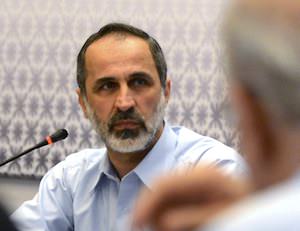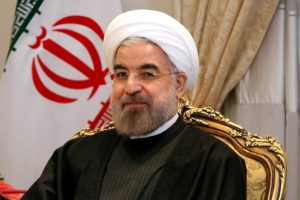Syrian Rebels Reject Exiled Leadership
Syrian rebel organizations inside the country have disowned their political leadership outside Syria, saying the exiled group does not represent them, and demanded that half of the leadership positions be filled with fighters within the nation.
Syrian rebel organizations inside the country have disowned their political leadership outside Syria, saying the exiled group does not represent them, and demanded that half of the leadership positions be filled with fighters within the nation.
The exiled Syrian National Coalition, an alliance of opposition organizations that was founded in Doha, Qatar, in November 2012, “is unable to fulfill its obligations due to the ongoing discord among the different parties represented,” said a statement on the website of the Local Coordination Committees.
The rebuke is likely to undermine the opposition’s standing with its foreign backers, Patrick Cockburn writes in The Independent.
The Syrian National Coalition will decide whether or not to meet in Geneva for a planned peace conference in June, and who should attend. It is also having trouble deciding whether to broaden membership of the 60-member coalition to more secular representatives.
— Posted by Alexander Reed Kelly.
Your support is crucial…Patrick Cockburn at The Independent:
The statement issued in the name of the Revolutionary Movement in Syria said that the failure of the opposition had opened the door to “blatant interference” by outside powers. This is probably a reference primarily to Saudi Arabia and Qatar, which support different opposition factions; Qatar supports the Muslim Brotherhood, which is regarded with suspicion by the Saudis.
As serious diplomatic moves aimed at a negotiated settlement initiated by the US and Russia begin, the total disarray and rancorous disagreements of the Syrian opposition will seriously hamper efforts by their foreign backers to support them as the new leadership of Syria.
The Revolutionary Movement of Syria said it could not “bestow legitimacy upon any political body that subverts the revolution”. Moaz al-Khatib, the former leader of the coalition, said he had stepped down because he had no influence and the group was a proxy for Saudi Arabia and Qatar.
With an uncertain future and a new administration casting doubt on press freedoms, the danger is clear: The truth is at risk.
Now is the time to give. Your tax-deductible support allows us to dig deeper, delivering fearless investigative reporting and analysis that exposes what’s really happening — without compromise.
Stand with our courageous journalists. Donate today to protect a free press, uphold democracy and unearth untold stories.








You need to be a supporter to comment.
There are currently no responses to this article.
Be the first to respond.